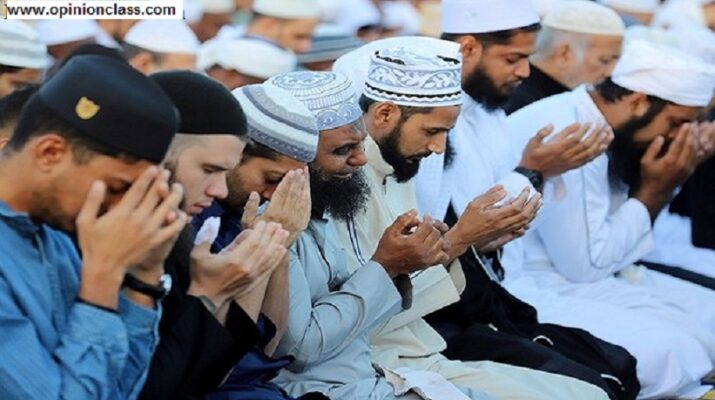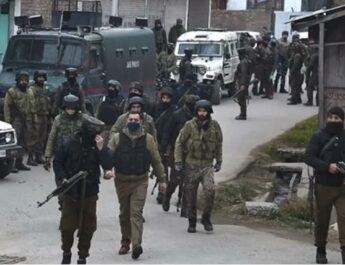Diminishing reservation quotas for SC/ST
Prime Minister Narendra Modi has accused the Congress party of diminishing reservation quotas for SC/ST and other backward class individuals. He asserts that the Congress intends to redistribute this reservation allocation to all Muslims based on religion, a move deemed unconstitutional. The query arises regarding whether Muslims are eligible for reservation under the Indian Constitution, the process for obtaining it, and the objections raised by the BJP if such reservations were to be granted.
First understand, can Muslims get reservation?
Certain Muslim communities in India benefit from the OBC (Other Backward Class) reservation at both central and state levels, as per Article 16(4) of the Constitution, which allows for reservation to be granted to underrepresented backward classes in state services.
The Third Backward Class Commission, led by Justice O Chinnappa Reddy, highlighted in its report that many Muslim communities face educational and social backwardness, with some economically comparable to Scheduled Castes (SC). Based on these findings, the Commission recommended educational reservation for Muslims under Article 15(4) of the Constitution. The 2006 Justice Sachar Committee report echoed this sentiment. Consequently, certain Muslim communities receive OBC reservation in accordance with the Constitution and Backward Class Commission reports.
Nonetheless, a caveat in OBC reservation exists – the ‘creamy layer’ clause. Individuals earning Rs 8 lakh or more annually are excluded from reservation benefits, regardless of their backward class status. This implies that even socially and economically progressive Muslims may not qualify for OBC reservation due to this criterion.
What is the current status of Muslim reservation in the country?
Certain Muslim castes receive OBC reservation in states where the Mandal Commission guidelines are enforced, as listed in the Central backward class roster. According to the PIB report, OBC reservation is extended to specific Muslim caste groups in Maharashtra, Karnataka, Andhra Pradesh, Gujarat, Rajasthan, Tamil Nadu, Teli Muslims, and Muslim Kayasthas in Uttar Pradesh, Bihar, Kerala, and Assam. The extent of reservation for Muslims varies across states.
- In Kerala, Muslims receive 8% reservation in education and 10% in government jobs out of the 30% OBC quota.
- Approximately 95% of the Muslim community in Tamil Nadu benefits from reservation.
- In Bihar, Muslims mainly fall under the ‘extremely backward class’ category among OBCs.
- Andhra Pradesh initially granted a 5% reservation to Muslims, which was later revoked due to the lack of consultation with the Backward Classes Commission.
Are there any conditions for giving reservation?
According to Supreme Court Advocate Ajeet Shahi, fulfilling specific criteria is crucial for any class seeking reservation. The ‘National Commission for Backward Classes’ assesses factors such as societal status, educational access for children, and family wealth to identify backward classes eligible for reservation.
Reports indicate that the Muslim community faces social, educational, and economic backwardness. The 2006 Sachar Committee report highlighted the overall backwardness of the Muslim community compared to Hindu-OBCs, proposing various support programs for Muslims.
Drawing from this report, a committee formed by the Kerala government in 2008 revealed significant disparities for Muslims in Kerala, particularly in social, economic, and educational aspects. The committee recommended reservations for Muslims in government positions and educational institutions based on these findings.
How Muslim quota was canceled in Karnataka
Previously in Karnataka, 4% of the 32% OBC reservation was allocated to Muslims as a sub-category, a provision that was revoked by the BJP-led Basavaraj Bommai government in March before the May 2023 Karnataka Assembly elections.
The BJP government redistributed this 4% among influential Hindu castes like Vokkaliga and Lingayat, citing constitutional concerns over granting reservation based on religion. Muslims falling under the Economically Weaker Section (EWS) category would still benefit from the quota.
The decision implied that the BJP government considered Muslims no longer backward, hence ineligible for reservation benefits. However, experts argue that the reservation was based on their social and economic backwardness rather than solely religious grounds.
Following a challenge in April 2023, the Supreme Court deemed the government’s decision as appearing weak and erroneous. Subsequently, the Bommai government assured the court that the decision would not be enforced during the ongoing legal proceedings. This development led the Congress to make announcements ahead of the assembly elections.




